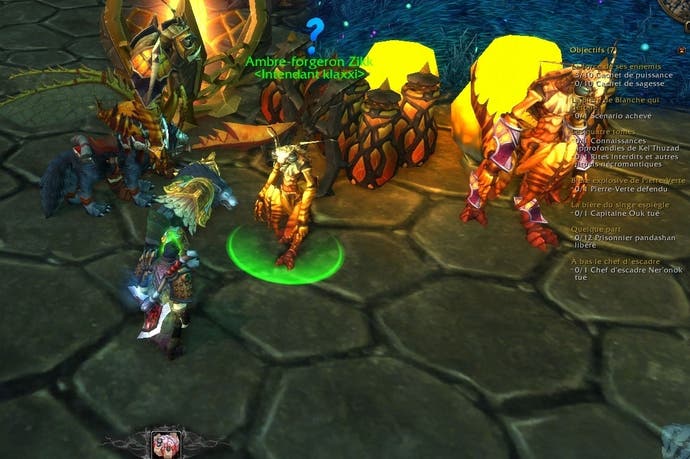Cyber psychologist calls on MMORPG developers to shorten long quests
To help prevent addiction and potential government intervention.
A cyber psychologist has called on the developers of massively multiplayer online role-playing games to help prevent addiction by tweaking their design.
Dr Zaheer Hussain, a lecturer in psychology at the University of Derby, called on MMORPG designers to look into the structure of their games, and suggested shortening long quests.
The recommendation was made in "Social responsibility in online videogaming: What should the videogame industry do?", a new study authored by Dr Hussain, Dr Shumaila Yousafzai from the Cardiff Business School and Professor Mark Griffiths, of Nottingham Trent University and director of the International Gaming Research Unit.
The study, published in the Addiction Research and Theory journal, recommended developers reconsider the structure of their games in order to avoid government intervention of a kind seen in Asia.
The study said some gamers play up to 90 hours a session, developing a "pathological" addiction. A distinction was made between video games with an ending and MMORPGs, which do not. The researchers said around seven to 11 per cent of players were considered "pathological" gamers.
Dr Hussain said: "As a first step online game developers and publishers need to look into the structural features of the game design, for example the character development, rapid absorption rate, and multiplayer features which could make them addictive and or problematic for some gamers.
"One idea could be to shorten long quests to minimise the time spent in the game obtaining a certain prized item."
In a BBC report, UKIE boss Dr Jo Twist responded to the study, saying: "There is no medical diagnosis of game addiction but like anything enjoyable in life, some people play games excessively."
This isn't the first time game addiction, particularly in reference to MMORPGs, has hit the headlines, and Blizzard's hugely popular World of Warcraft is often cited in these cases.
In December 2010 Panorama investigated the issue in a programme called "Addicted to Games?". In it, Panorama reporter Raphael Rowe met a mother who cut off her internet connection at home because she was worried about the amount of time her 19-year-old son was spending playing World of Warcraft.
At the time, Blizzard issued Panorama the following statement: "Our games are designed to be fun... but like all forms of entertainment... day-to-day life should always take precedence. World of Warcraft contains practical tools that assist players and parents in monitoring playing time."
And in August 2012 the issue re-emerged after CNN met with people who had been in South Korean treatment centers for gaming addiction.
Then, Blizzard issued another statement.
"Games are meant to be a source of entertainment, and as with movies, books, sports, and music, we recognise that different people participate for different durations. With any form of entertainment, we feel it's important to exercise personal responsibility and be mindful of outside obligations. It's never our intent for our players to play our games to the exclusion of other activities.
"We also feel that a person's day-to-day life should take precedence over any form of entertainment and that it's ultimately up to the individual game player or his or her parent or guardian to determine how long he or she should spend playing any game.
"It's important to note that players are able to jump into our games and accomplish appreciable and fulfilling goals, such as competing in matches, completing quests or matches, purchasing or selling equipment for their characters, hunting monsters, and socialising with friends, in a short amount of time, making our games enjoyable with minimal time commitments."
In China, the Ministry of Culture has imposed strict restrictions on online gaming, designed to regulate the amount of time young people spend playing. Simon Parkin investigated café fatalities in Taiwan in an article published on Eurogamer last year.
A useful resource on MMO game addiction and the motivations of play is The Daedalus Project, which is the work of social scientist Nick Yee. The Daedalus Project, currently in hibernation, was an online survey of more than 40,000 MMORPG players that looked into how people interacted and competed in virtual worlds. Yee found about 50 per cent of MMORPG players would consider themselves addicted to the game.








.png?width=291&height=164&fit=crop&quality=80&format=jpg&auto=webp)